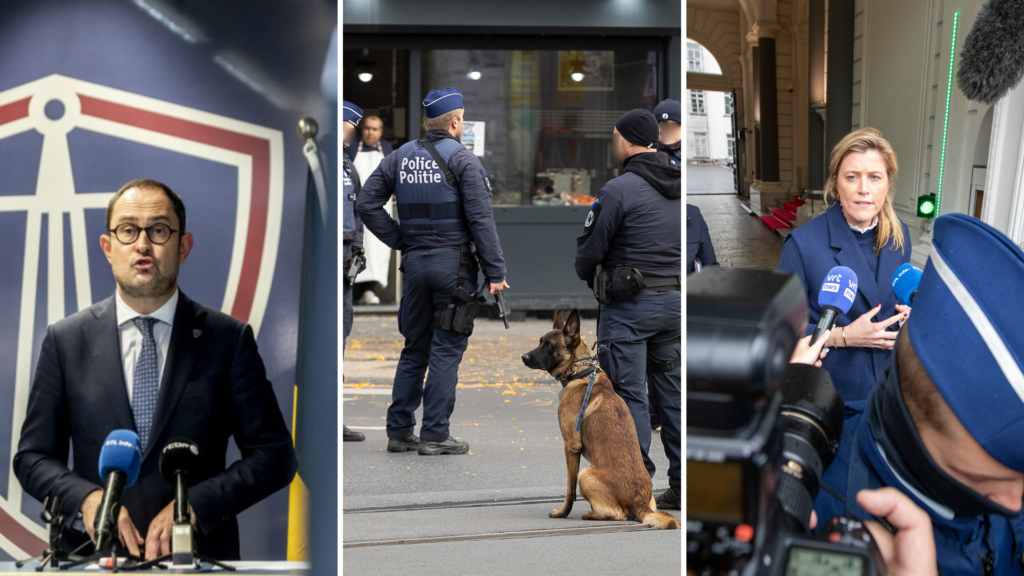The terror attack of last Monday 16 October, in which two were killed by a radicalised gunman who claimed to be acting for Islamic State, has been followed by a critical review of Belgium's security services and protocols to guard against such incidents.
This led to the resignation of Justice Minister Vincent Van Quickenborne on Friday, who found his position untenable after a series of failures in his department came to light. Whilst it had already been established that the gunman, Tunisian national Abdeslam Lassoued, was known to Belgium's Foreign Office, it subsequently transpired that just one year ago, a request from Tunisia to extradite Lassoued had been left unprocessed.
Already known to Swedish authorities after serving a two-year prison sentence for drug trafficking, the 45-year-old was also wanted in his home country for escaping from a Tunisian prison in January 2011, where he was serving a 26-year sentence, allegedly for attempted murder and various other charges. Critics point to yet another warning sign that Belgian authorities missed.
Announcing his decision to stand down on Friday, Van Quickenborne attributed blame to the "individual error" of the magistrate charged with Lassoued's case. He defended the independence of the judiciary and made clear that "As Minister of Justice, I can in no way intervene in a magistrate’s decisions."
Whilst absolving himself of direct culpability for the attacks, Van Quickenborne stated: "I nevertheless wish to assume political responsibility for this unacceptable error." He went on to apologise to the families of the victims – two Swedish football fans in Brussels to cheer their team in a Euro qualifier fixture against Belgium.
An administration system stuck in the past?
Ascribing blame for the attack to individuals is to miscomprehend structural issues within Belgium's systems of administration, with commentators pointing to protocols that are hopelessly antiquated.
Speaking on La Première radio on Monday morning, Denis Goeman (former spokesperson for the Brussels Public Prosecutor) explained the archaic protocols that exist to this day. He highlighted delays in the digitalisation of the national justice department, describing how paper dossiers are still used. He stressed that one dossier can easily be misplaced among the thousands of others being treated.
"If we worked with digital files, these would be sent immediately to the competent magistrate. If this was not dealt with reminders can be sent automatically, which would avoid situations such as this one."

Fit for purpose? Belgium's justice department has long lacked the funding it requires to treat the influx of cases. Credit: Belga / Eric Lalmand
Goeman's comments follow revelations that Lassoued's file had been left untreated in a cupboard. Yet the former civil servant went further in his criticism, saying that there has been sustained inaction to deal with shortages in the police and justice department. He drew attention to a need for at least 20 more magistrates to deal with the administrative backlog.
In just two years, the number of dossiers that require attention has risen 25%, numbering 1650 in 2022.
More resignations possible during the week
Also in the hot seat as investigations continue is Interior Minister Annelies Verlinden (CD&V), as questions were raised about whether the police had exercised due vigilance. However, State Secretary Thomas Dermine (PS) said on Sunday that Verlinden has the confidence of the government "so far".
On Saturday, the Minister for the Interior explained that given the current state of information, the police could not be blamed for allowing Lassoued to remain free before he committed the shooting. For his part, Dermine clarified that with the information we have today, no unacceptable or serious mistakes have been made."
Related News
- Brussels Prosecutor deplores attacks on magistrate in charge of Lassoued extradition case
- Brussels terror attack: Growing number of false alarms across Belgium
However, Conner Rousseau – leader of the Flemish socialist party Vooruit – didn't rule out that more incriminating information could arise still: "We don't know what else will be on the table this week". In his view, it is not yet "100%" certain that the minister is not responsible in this matter.
Other ministers stressed the importance of asking the right questions and finding solutions for the internal control of the judicial system, police procedures and the ease with which weapons can be obtained.

